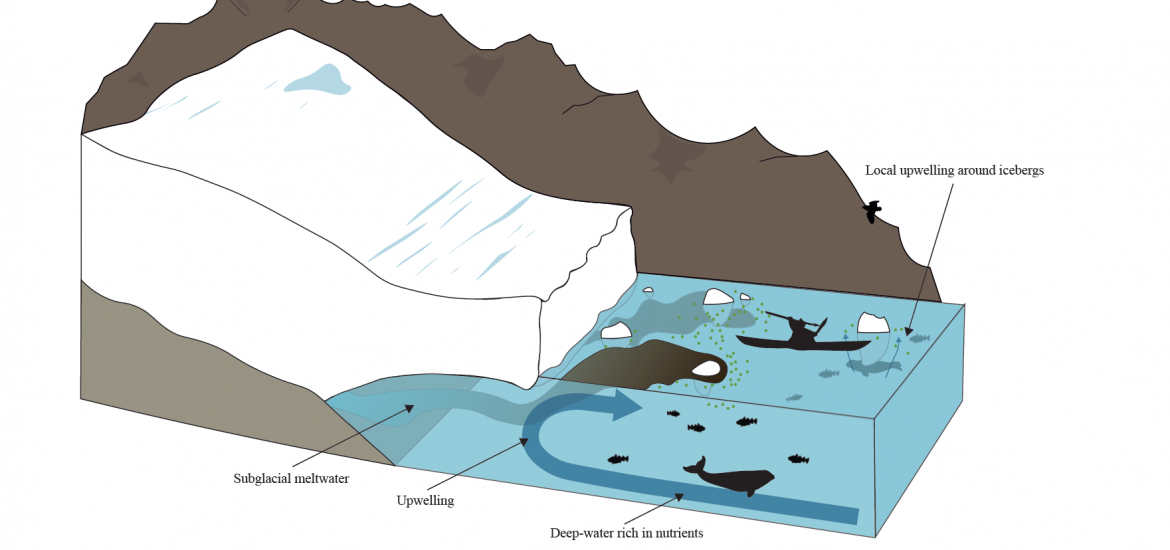- Home
- All News Overview
- Climate Change & The Cryosphere: Fjord Sediments Reveal How Melting Ice Impact The Marine Ecosystem

Climate Change & the Cryosphere: Fjord sediments reveal how melting ice impact the marine ecosystem
Tuesday, 18 January, 2022
Mimmi Oksman and Anna Bang Kvorning have written an article about the ACME (Arctic Cryosphere Change and Coastal Marine Ecosystems) working group and its research in the Cryospheric Sciences (CR) Division blog of the European Geosciences Union (EGU) titled "Climate Change & the Cryosphere: Fjord sediments reveal how melting ice impact the marine ecosystem."
"As the Greenland Ice Sheet is losing mass rapidly and its marine-terminating glaciers are retreating towards the land, the question is: “What will happen to these vulnerable coastal ecosystems in the future?” In detail, this means we do not know if fjords will bloom and flourish with numerous species, or if the marine production will slowly decrease leading to significantly smaller fishery yields. Our knowledge of cryosphere impacts on coastal ecosystems is limited and mostly based on monitoring data, such as from the Greenland Ecosystem Monitoring (GEM). However, these monitoring datasets often cover only the last few decades, when the Arctic already experienced many rapid changes. But luckily, marine sediment archives can provide us a long-term paleo-perspective and tell us more about the natural state of ecosystems and how cryosphere changes impacted them before human-caused climate change started. This way we can understand the recent changes in a wider context of long-term natural variability." ...
